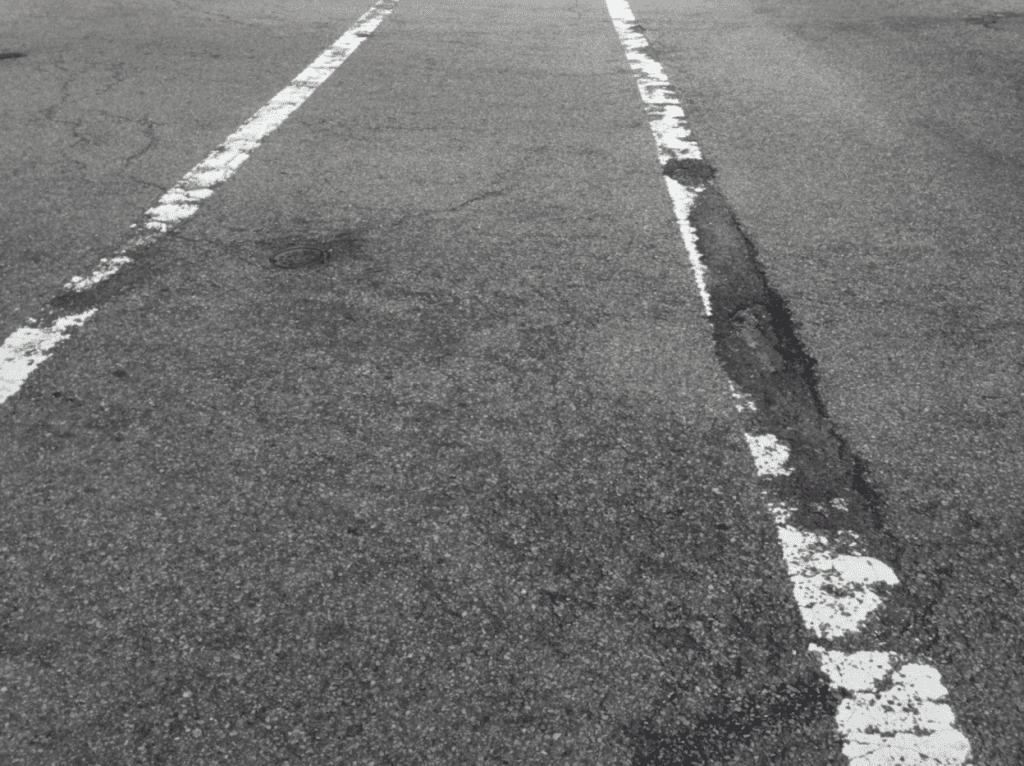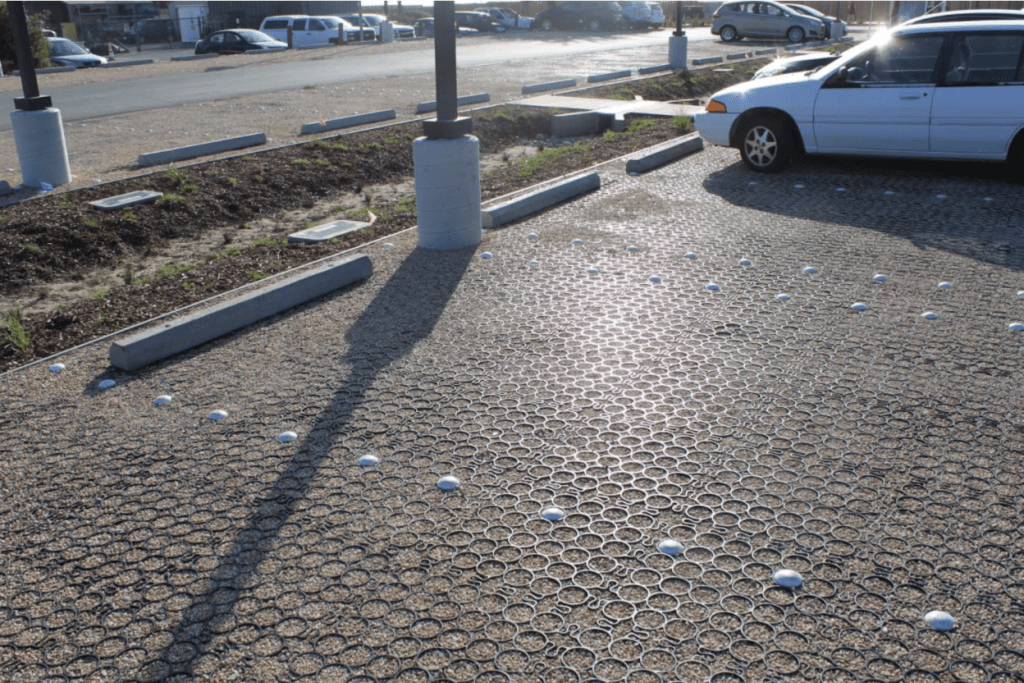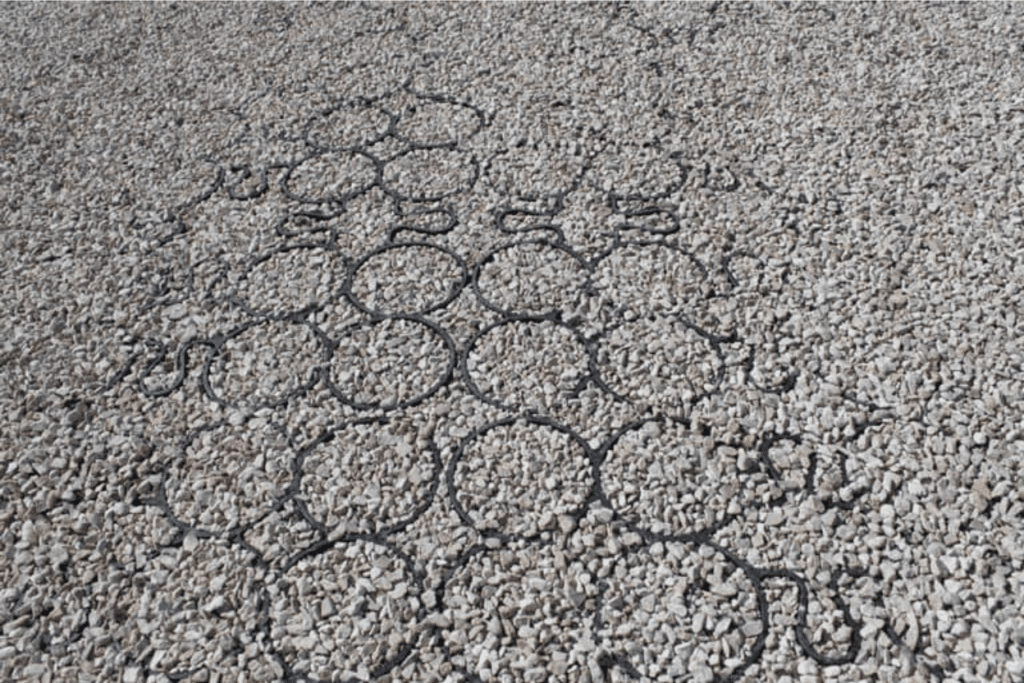The use of permeable pavement has been around for a long time. Wherever there’s a want or a need for the flow of stormwater directly through a paved surface as opposed to relying solely on additional drainage systems and sloping, permeable pavement is a great solution.
One type of permeable pavement that’s been popular lately is pervious pavement. Pervious pavement differs from permeable pavement in that it’s not nearly as permeable.
Though the words are sometimes used interchangeably, pervious pavement typically refers to materials such as pervious asphalt and pervious concrete. These are paving materials that are designed to allow for the flow of stormwater directly through the asphalt or concrete, albeit at a much slower rate than a fully permeable material.
Pervious asphalt and concrete can seem like a great way to get the best of both worlds in terms of a paving solution, but they are not without their drawbacks. Let’s take a look at some common problems with pervious asphalt/concrete, as well as a better solution.
What is Pervious Concrete or Asphalt Pavement?
Pervious pavement is intended to be a way for business owners and homeowners to implement a typical concrete or asphalt surface, with the added benefit of built-in drainage. This can be a viable solution for areas that do not expect very much rainfall at all, or areas where there is already another type of drainage system in place and pervious asphalt or concrete pavement is used as a supplement.
This might include a driveway in a low-rainfall area, for example. However, most people would not actually benefit from using pervious concrete or asphalt as much as they might think. For starters, porous concrete and asphalt aren’t all that permeable.

They can handle a slow, light rate of precipitation, but will easily overflow when presented with heavier precipitation. This negates any benefit you would have gotten from the built-in drainage capabilities since the overflow ends up in the same place it would have if you had an impermeable surface in place.
Porous asphalt is also known to clog easily. Because the gaps for liquid to travel through are smaller, pervious pavement can easily become clogged with debris and requires maintenance to keep it clean and clear. It’s also more expensive than regular pavement because of the layered drainage system which typically utilizes an expensive stone filter bed that provides support for the top layer of pavement.
It takes a long time and many pieces of special equipment to install permeable asphalt and concrete as well, which drives up the cost of labor. Not only that, but pervious asphalt and concrete usually only have a lifespan of about 20 years, assuming it’s been perfectly maintained.
Aside from those issues, pervious asphalt is vulnerable to many de-icing chemicals and can be difficult to maintain in the winter. It’s not all that durable and will easily become damaged and worn out under heavy vehicle traffic.
Many permeable asphalt surfaces are also connected to an expensive water storage basin, all in the name of implementing a “typical-looking” paved surface while still achieving some level of inherent drainage.
The Superior Alternative to Permeable Asphalt or Concrete
If you live or work in an area with an average level of precipitation, or you just want a more cost-effective, stylish, and durable pavement solution, you need permeable pavement. Whether you’re building a permeable concrete driveway or a commercial parking lot, permeable pavers have got you covered from all angles.

For instance, TRUEGRID PRO LITE and TRUEGRID PRO PLUS are both superior to all types of asphalt and concrete in almost every way. They are much more durable, with a lifespan of up to 60 years and almost no maintenance required.
They’re also more cost-effective because they are 98%-permeable and eliminate the need for any additional drainage systems. They never need to be resurfaced throughout their lifetime, as pervious asphalt and concrete do.

They are made from 100%-recycled plastic, making them both incredibly durable and eco-friendly. TRUEGRID pavers are the best-in-class when it comes to permeable pavement, and are stylistically diverse enough to provide you with many different aesthetics.
Whether you want a clean-cut, professional-looking paved surface, a creative, unique surface, or something in-between, different types of aggregate can be used in your pavers to provide a ton of variability in your design.
TRUEGRID Pavers are Superior to Porous Asphalt or Concrete in Every Way
When it comes to style, ease of installation and maintenance, durability, eco-friendliness, cost-effectiveness, and overall functionality, you can’t do better than TRUEGRID permeable pavers. If you want the best paving option for any situation, call TRUEGRID today to get in contact with a dedicated pavement professional.



